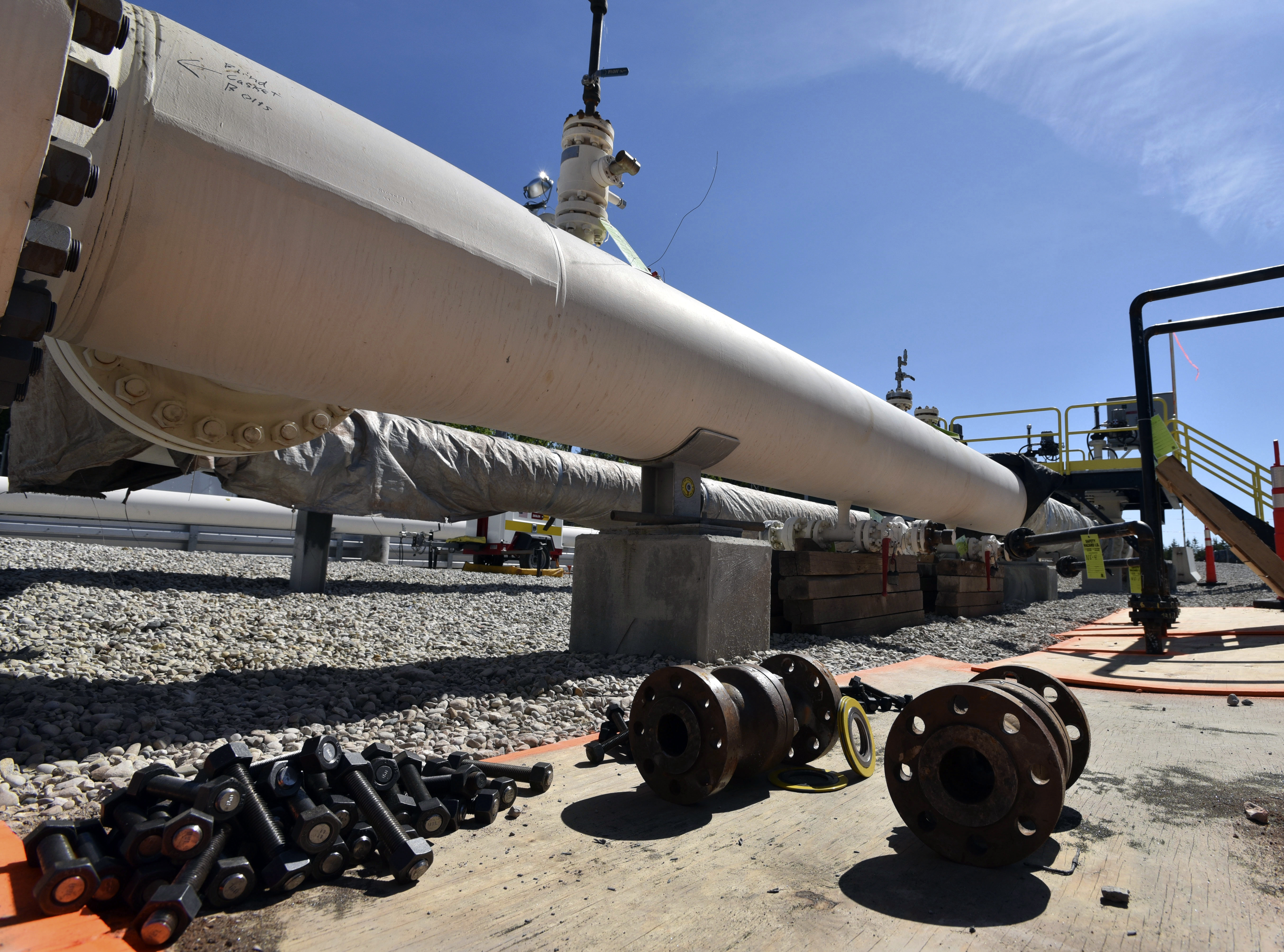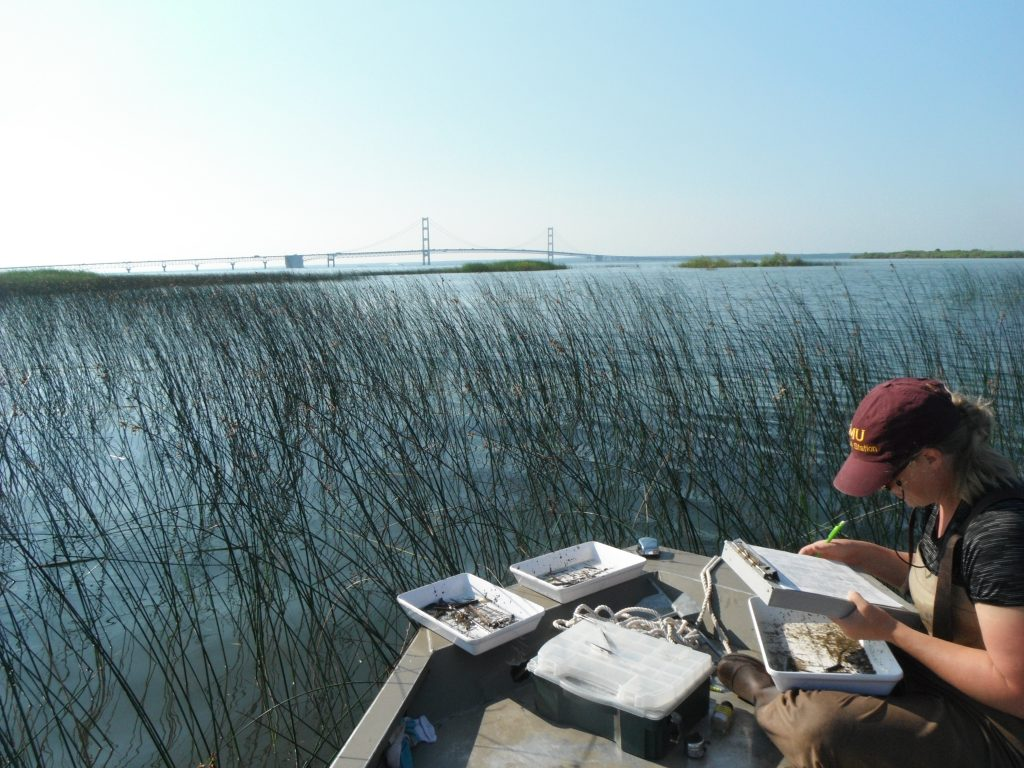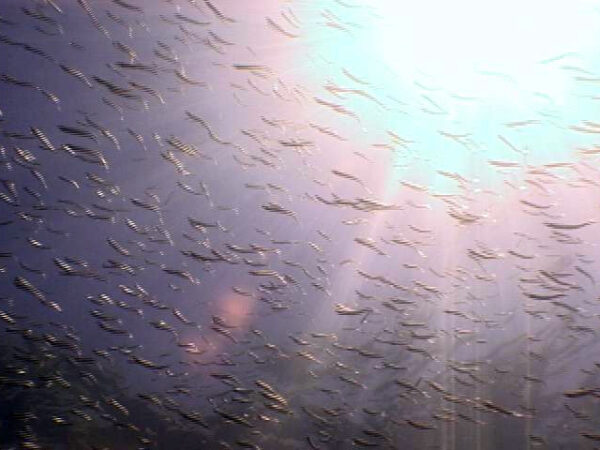
The state agency that has to green light Enbridge Energy’s controversial pipeline in a tunnel project in the Straits of Mackinac hit the pause button on the process last week when it told the company it needs additional information.
The new pipeline would replace the 67-year-old existing Line 5 that runs through the bottom of the straits.
“The application has been determined to be incomplete as received and cannot be further processed until the information and edits requested have been submitted,” wrote the Department of Environment, Great Lakes, and Energy in a detailed May 4 letter obtained by Great Lakes Now.
Specifically, EGLE said Enbridge did not meet the requirement that information submitted for review by the public must be “concise… and easily accessible to the public.”
The submitted document for public review totaled over 350 pages, the agency said.
Watch Great Lakes Now‘s coverage of Enbridge Line 5:
API key not valid. Please pass a valid API key.Pristine wetlands at risk
The pipeline project is expected to impact wetlands which will require mitigation and a wetland mitigation plan, EGLE told Enbridge.
The impacted wetlands are some of the most pristine in the Great Lakes region, Central Michigan University professor Don Uzarski told Great Lakes Now.
“The physical alterations from construction in the area concerns me,” said Uzarski, who manages a $20 million regional wetland program for the U.S. EPA. EGLE staff works with Uzarski on the program.
“The coastal wetlands in the Straits of Mackinac are among the most pristine, if not the most pristine, coastal wetlands of lakes Michigan and Huron,” according to Uzarski, who said he uses them as a benchmark to measure the health of other wetlands in the region.
In the Great Lakes basin, “we have lost about 50 percent of the coastal wetlands since European settlement and that number goes up to about 95 percent in areas like Saginaw Bay,” Uzarski said. He attributed the loss to development and draining for agriculture.
EGLE did not respond to questions about wetland mitigation. “EGLE’s correspondence to Enbridge speaks for itself,” spokesperson Scott Dean said.
The Army Corps of Engineers also has jurisdiction over the pipeline project and has requested additional information from Enbridge, according to Katie Otanez, regulatory project manager.
“During the course of our permit review, we will review the expected wetland impacts and determine whether mitigation is necessary,” Otanez said.

Photo courtesy of Central Michigan University’s Institute for Great Lakes Research.
Permit pause
An environmental coalition opposed to the pipeline project has called for a pause in the permit process during the COVID-19 crisis.
The Oil and Water Don’t Mix coalition is concerned that because of restrictions imposed on the public by the crisis, the process is proceeding without the adequate opportunity for public comment that is required by law.
“Our goal is to ensure that all Michigan citizens in every Michigan community that are interested in participating in the public comment process have ample opportunity to offer their views on the permit applications, including at public hearings and at public information meetings,” the coalition wrote to Michigan Gov. Gretchen Whitmer in an April 8 letter posted on its website.
“The Whitmer administration has responded to the coalition and continues to have regular communication with Oil and Water Don’t Mix, as well as, other environmental and tribal government partners on their interest in the permitting process for Enbridge,” spokesperson Chelsea Lewis said in an email.
Lewis did not provide specifics on the response.
EGLE is adapting its processes so they align with effort to slow the spread of COVID-19 and still allow for meaningful public participation and input, spokesperson Dean said.
“These adaptations will be dependent on several variables such as the status of executive orders designed to slow the spread of COVID-19 and the dates of future public consultation and hearings which are still not known,” according to Dean.
The Army Corps’ Otanez said commenters may request a public hearing and “the Corps will determine whether to hold one, based on whether we believe it would give us information that could not otherwise be gained.”
“Enbridge recognizes that these submittals are happening at a very challenging time as Michigan and the country continue to engage in the COVID-19 response,” company spokesperson Ryan Duffy said in an email.
Enbridge has been in regular communication with the state and federal agencies, Duffy said, to ensure that the company is meeting the requirements of the agencies.
In its letter to Enbridge, EGLE recommended that the company “consider the benefits of scheduling a conference call” to discuss the corrections needed in the application.
Asked by Great Lakes Now to put the letter and its requirements in perspective, spokesperson Dean said, “this is part of the normal review process for applications.”
Enbridge’s Duffy said its recent consultations with state and federal agencies have “been helpful in making certain the applications and the process met their requirements, expectations and capabilities.”
Enbridge has 30 days to respond to the EGLE letter.
Catch up with the rest of Great Lakes Now‘s Line 5 coverage here:
Look Back at Line 5: Check out the archives of the pipeline’s original construction
Enbridge seeks permits to build Great Lakes oil tunnel
Line 5 Reroute In Northern Wisconsin Sows Division Among Some Communities
Energy Alternatives: Outside of Line 5, where can Michiganders get energy?
Featured image: In this June 8, 2017, file photo, fresh nuts, bolts and fittings are ready to be added to the east leg of the pipeline near St. Ignace as Enbridge prepares to test the east and west sides of the Line 5 pipeline under the Straits of Mackinac in Mackinaw City, Mich. (Dale G Young/Detroit News via AP)/Detroit News via AP)
1 Comment
-
Any chance of hurting our wetlands or a spill in the lakes makes it a “NO GO” as far as I am concerned. There has to be a better way that can be done without putting our clean water in jeopardy. The companies dealing with these pipelines are known for taking poor care of their toys and we are the ones who suffer. I am against any pipe lines that are under our water. There are other safer ways of doing things. We have had to deal with other spills in the state and do not need to have to take a chance on a spill at the straits. Whoever allowed this , in the first place was wrong.




